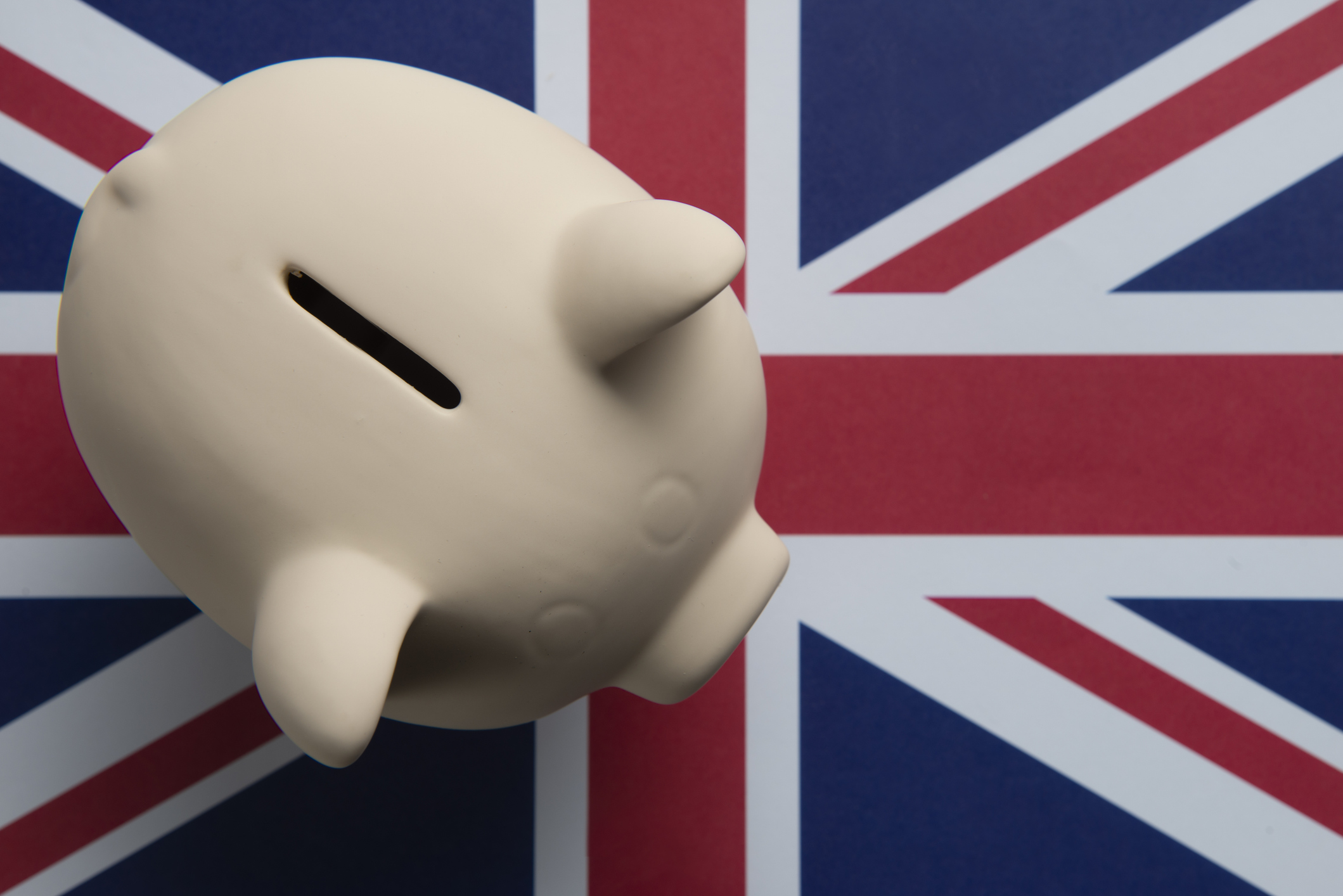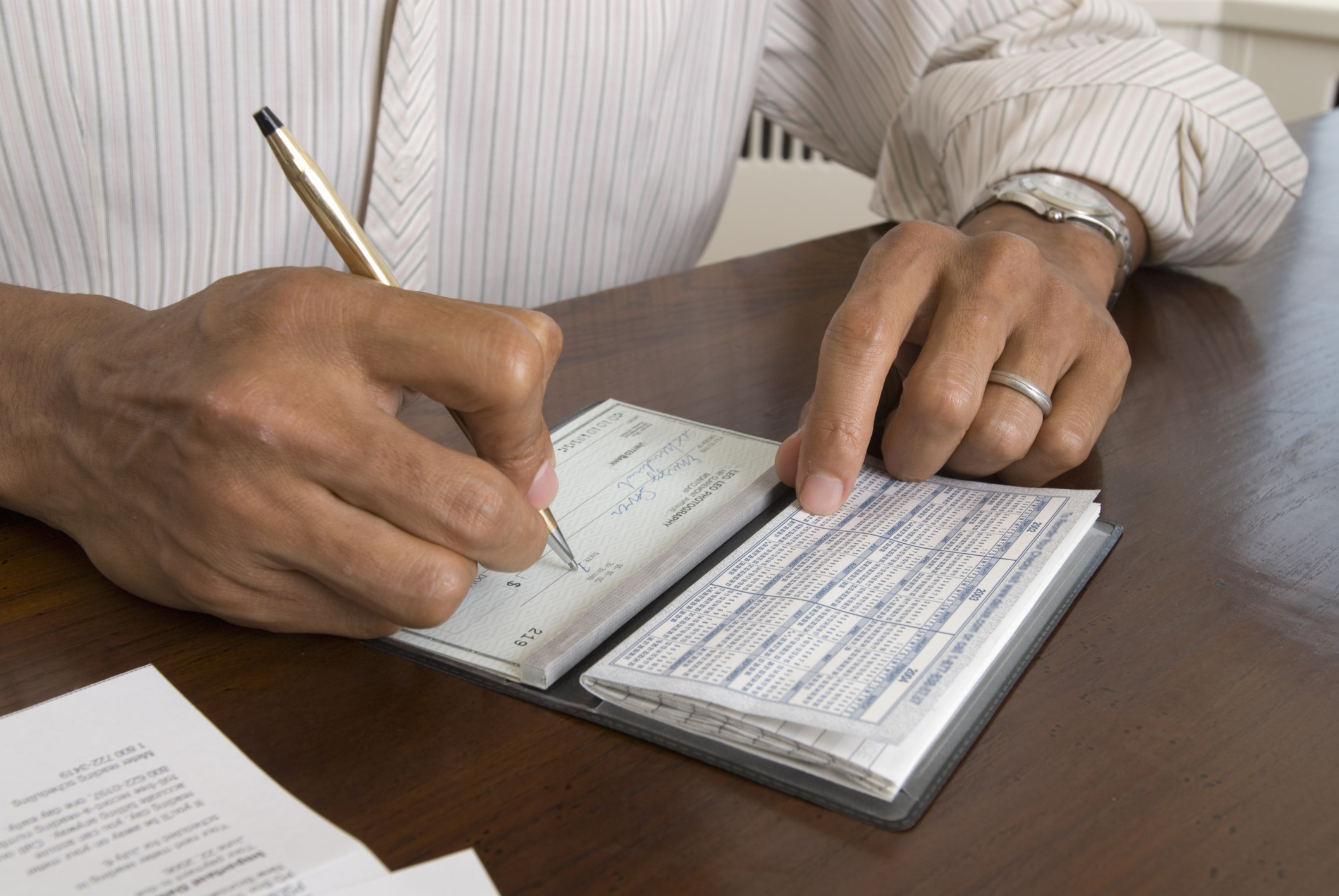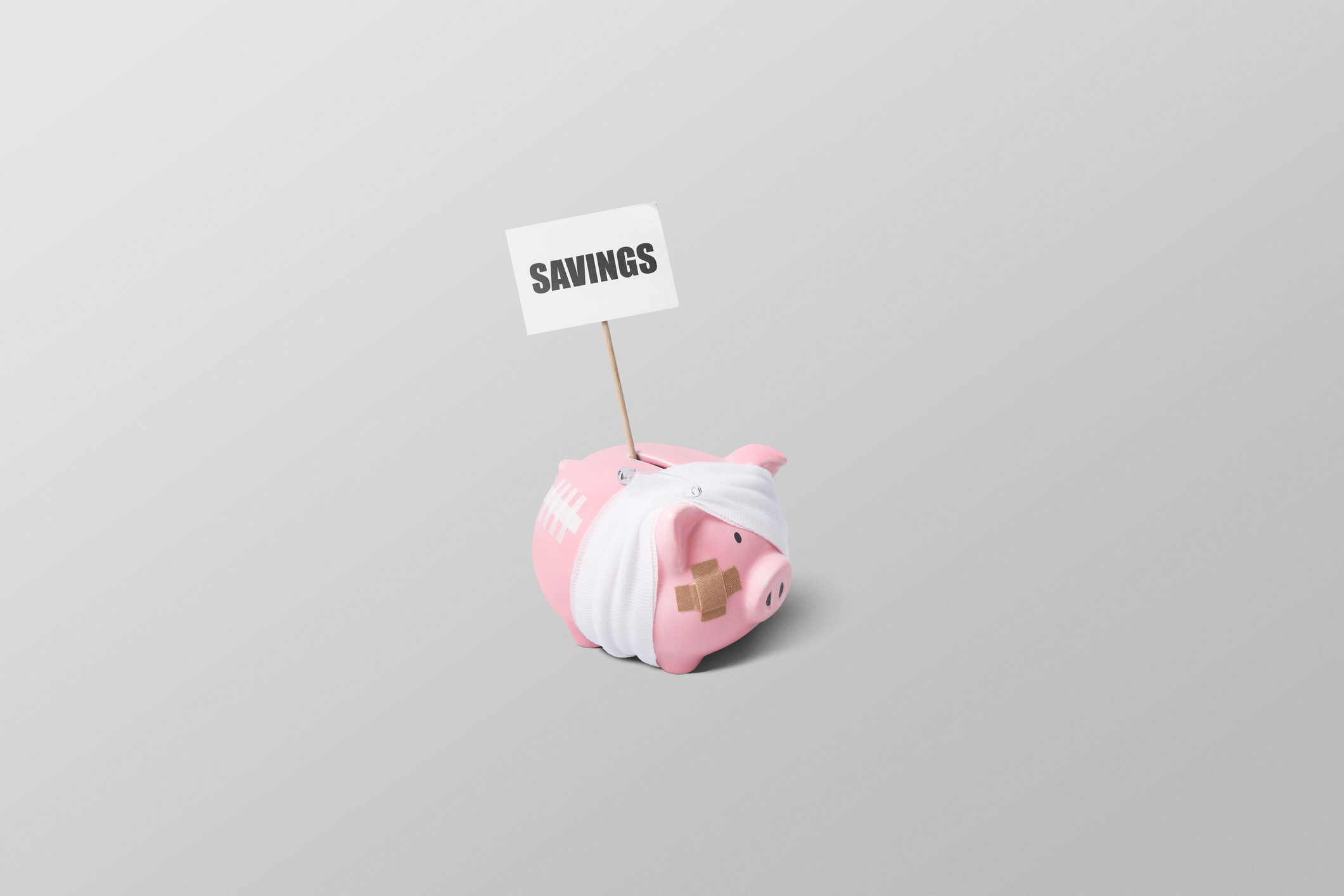Can I cash in my pension early?
High living costs and rising taxes could make you wonder whether it's worth cashing in your pension early, but it might not be a good idea.


Get the latest financial news, insights and expert analysis from our award-winning MoneyWeek team, to help you understand what really matters when it comes to your finances.
You are now subscribed
Your newsletter sign-up was successful
Want to add more newsletters?
The cost of living remains a struggle for millions – and many older workers may be looking to cash in their pension early and free up some extra money.
Inflation has slowed from a 41-year high of 11.1% in 2022, but people’s real-term income is still being eroded, and interest rates are at 4%, making it more expensive to borrow.
Meanwhile, pensions falling into inheritance tax estates from April 2027 and health issues which make working full-time a struggle could prompt others to draw on their cash earlier than planned, said Helen Morrissey, head of retirement analysis at financial services firm Hargreaves Lansdown.
Try 6 free issues of MoneyWeek today
Get unparalleled financial insight, analysis and expert opinion you can profit from.

Sign up to Money Morning
Don't miss the latest investment and personal finances news, market analysis, plus money-saving tips with our free twice-daily newsletter
Don't miss the latest investment and personal finances news, market analysis, plus money-saving tips with our free twice-daily newsletter
“Many more people will now be looking at how to spare their families a tax bill. You may also find that you need to access your pension early due to ill health,” Morrissey said.
But for those thinking about taking money from their pension pots early, there are risks involved.
Retirement costs have soared in recent years, with many already facing a pension shortfall. Taking from your pot early could exacerbate this issue.
With the cost of a comfortable retirement now £43,900 per year for a single-person household, or £60,600 for a two-person household, we look at the benefits and drawbacks of withdrawing pension money early.
When can I take my pension?
If you have a private pension, you don’t need to wait until state pension age, currently 66, to access it, but you should think carefully about what approach is right for you before making any irreversible decisions.
Currently, you can start drawing on your private pension after you turn 55 – although this will increase to 57 in 2028. At this point, you can withdraw up to 25% of your pension pot tax-free, either as a lump sum or in instalments.
The amount of tax-free cash you can withdraw under the 25% rule is capped at £268,275. Beware of going over this 25% threshold though.
Adam Cole, retirement specialist at wealth management firm Quilter, said: “Any withdrawals above the tax-free amount are subject to income tax, which may push you into a higher tax band and result in an unexpected bill.”
When it comes to the other 75% of your pension pot, you have a range of different options:
Annuities
You could use your pension savings to buy an annuity. This will provide you with a regular guaranteed income for the rest of your life or for a set number of years, depending on the type of annuity you purchase.
For a long time, annuities were an unattractive option, but their popularity has surged in recent years. The average annuity rate reached 7.65% in September 2025, a year-on-year increase of 9.68%, according to the Standard Life Annuity Rates Tracker.
A total of 88,430 annuities were sold in 2024/25, up 7.8% compared to a year earlier, according to the Financial Conduct Authority (FCA). They spiked 39% between 2022/23 and 2023/24.
However, buying an annuity is an irreversible decision, so you should conduct thorough research before making a decision and consider taking financial advice.
For example, not all annuities can be passed on to your partner if you die, unless you opt for a dual-life annuity. The rates on dual-life annuities are often lower than those on single-life products.
It is also important to shop around to secure a competitive rate.
Pension drawdown
Pension drawdown is where you leave some money invested in the hope it will grow, and take a regular income directly from the fund. This approach gives you more flexibility compared to buying an annuity.
The drawback is that it offers less certainty, as you don’t know which direction markets will move in, meaning the value of your pension pot could go down at times as well as up.
With drawdown, you also need to consider how much cash you want to take out and at what intervals. You will need to make an assessment about your own longevity to reduce the risk of depleting your pot prematurely.
A combination of drawdown and annuity
It is possible to do a combination of the two approaches, using some of your pension pot to buy an annuity and leaving the remainder in drawdown. This can offer a good balance for some retirees.
Leave it invested
Another option is not to release your cash at all and instead let it increase in value until you decide you want to dip into it.
If you are still working beyond age 55 or have sufficient savings tucked away elsewhere to fund the start of your retirement, it might make sense to draw on other money first.
Under current rules, pension pots sit outside of your taxable estate for inheritance tax purposes, but this is set to change from April 2027 after changes announced in the Autumn Budget.
Historically, this IHT perk has made pension pots a tax-efficient way to pass on wealth after you die, but we could see a change in pension behaviour in light of the changes.
Watch out for retirement regret
Accessing your pot too early could mean running out of money later in your retirement.
Around one in 10 retirees aged 55 and older who withdraw money from their pension before leaving full-time work regret it, according to research by retirement specialist Just Group.
Its survey of more than 1,000 people found that 28% had withdrawn pension cash between the age of 55 and when they finished working full time, either as a lump sum or through income drawdown. Almost half said they received no financial advice or guidance.
Meanwhile, the FCA’s latest retirement income market data shows that in 2024/25 the number of people accessing their pension plan for the first time increased by 8.6% on the year before.
When making such a move, it can be worth considering using a financial adviser.
However, the FCA’s data shows that the number of people taking advice is falling. Only 30.6% of those who accessed their plan for the first time in 2024/25 took advice, according to the industry watchdog, down from 30.9% the year before.
Bear in mind, any money taken out of a pension early is losing its tax-free wrapper status.
Robert Cochran, retirement specialist at Scottish Widows, said: “If you are putting it somewhere like your bank account, you may be paying tax on any interest that you get on the cash.
“A good rule of thumb would be to take it if you are going to spend it and consider paying off your mortgage or other loans.”
Can I cash in my pension early?
If you want to cash in your pension before you hit 55, it gets a bit more complicated and is almost always inadvisable.
“There are only a few instances where savers can release their pension before the age of 55, such as extreme ill health or terminal illness,” says PensionBee. “If none of these circumstances apply, HMRC may view the early pension release as unauthorised, imposing a 55% tax charge on the amount withdrawn. No reputable pension provider will approve an early withdrawal unless these conditions are met.”
In other words, while it might be tempting to look at your pension pot as a way to boost your income throughout the cost-of-living crisis, the fact is you would almost certainly be losing out.
Because of the hefty HMRC charges, most pension providers won’t help you release your pension early. Instead you would have to turn to a third party who could charge up to 30% to do so.
There is an increased risk with this too – most of the firms that arrange early pension release aren’t FCA authorised and so your money isn’t secure, says PensionBee.
In other words, trying to cash in your pension before you hit 55 is almost always a bad idea. Not only will it expose you to significant risk, it will also result in you giving up a large sum of your hard-earned money in exchange for a small fraction now.
Be wary of pension scams
“There are numerous pension scams which claim to help savers access their pension before the age of 55 by exploiting loopholes in the system,” warns PensionBee.
“Unless a saver meets some of the above criteria or has been explicitly informed by a provider that they qualify for early pension release, savers should never trust a third party to withdraw their pension on their behalf.”
Get the latest financial news, insights and expert analysis from our award-winning MoneyWeek team, to help you understand what really matters when it comes to your finances.

Sam has a background in personal finance writing, having spent more than three years working on the money desk at The Sun.
He has a particular interest and experience covering the housing market, savings and policy.
Sam believes in making personal finance subjects accessible to all, so people can make better decisions with their money.
He studied Hispanic Studies at the University of Nottingham, graduating in 2015.
Outside of work, Sam enjoys reading, cooking, travelling and taking part in the occasional park run!
-
 Brits leave £31.6 billion in savings accounts paying 1% interest or less – do you need to switch?
Brits leave £31.6 billion in savings accounts paying 1% interest or less – do you need to switch?Eight million Brits hold money in savings accounts that pay 1% interest or less, meaning the value of their cash is being eroded by inflation.
-
 Buying vs renting: is is better to own or rent your home?
Buying vs renting: is is better to own or rent your home?The higher mortgage rates of recent years have actually made renting comparatively cheaper, analysis suggests. But there are hidden costs to long term renting.
-
 Hargreaves Lansdown launches first cash ISA – how does it compare?
Hargreaves Lansdown launches first cash ISA – how does it compare?Hargreaves Lansdown is offering an own brand cash ISA for the first time with their new easy-access account. How does the interest rate compare to other products?
-
 Is Britain heading for a big debt crisis?
Is Britain heading for a big debt crisis?Opinion Things are not yet as bad as some reports have claimed. But they sure aren’t rosy either, says Julian Jessop
-
 ‘My NS&I one-year British Savings Bond is maturing – what should I do with my savings?
‘My NS&I one-year British Savings Bond is maturing – what should I do with my savings?Thousands of savers will see their fixed-rate savings accounts mature next month. We consider whether you should stick with NS&I or move to a competitor
-
 How to pay in a cheque
How to pay in a chequeReceiving or writing a cheque has become much less common in recent years as instant bank transfers have grown in popularity. Amid widespread bank branch closures, we explain what to do if you get a cheque, and how you can pay one into your bank account.
-
 ‘Current account coasters’ are leaving billions of pounds languishing in low interest accounts
‘Current account coasters’ are leaving billions of pounds languishing in low interest accountsThe average saver with £10,000 or more in their zero interest current account is missing out on over £1,500 in potential interest payments, new research has revealed.
-
 Best fixed rate cash ISAs – earn up to 4.22%
Best fixed rate cash ISAs – earn up to 4.22%We look at the best fixed rate cash ISAs on the market right now for savers who are willing to lock their cash away for guaranteed tax-free gains

